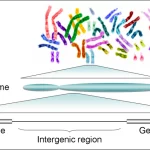
How AI is Transforming Bioinformatics: 2023 Update
September 1, 2023Artificial Intelligence and Its Impact on Bioinformatics Research in 2023
Artificial Intelligence and Its Transformative Role in Bioinformatics for 2023
In 2023, the bioinformatics sector is witnessing a major shake-up, largely due to advancements in artificial intelligence. AI is providing new avenues for crunching biological data, streamlining drug innovation, and enhancing the accuracy of disease identification.
Current Developments
Various innovative AI-driven solutions, such as Twill and Merative, are steering bioinformatics in new directions. These tools are particularly beneficial for refining techniques related to heart imaging and diagnosing gut-related medical conditions.
Drug Innovation Fueled by AI
For instance, Google AI’s project, known as DeepChem, applies AI algorithms to dissect extensive genetic and cellular data to find new treatment options, particularly in oncology.
Enhanced Disease Recognition
IBM’s Watson Health division has come up with a tool named Watson for Oncology, revolutionizing how medical experts select treatments for cancer by analyzing a vast swath of healthcare information.
Tailored Healthcare Solutions
Another example is the emerging company GRAIL, which uses AI to develop early-stage cancer detection tests. These tests are tailored to individual genetic variables.
Potential Obstacles
While AI promises a brighter future for bioinformatics, several hurdles remain. One critical issue is the scarcity and inconsistency of data sets, a significant obstacle for the deep learning algorithms commonly used in AI.
Biological systems are also inherently intricate and ever-changing, demanding that AI models accommodate this complexity, a task easier said than done.
There’s also the issue of “black box” algorithms. The complicated nature of these algorithms makes them difficult to unravel, a significant limitation in a field where the biological rationale is paramount.
And we can’t forget ethical dilemmas, like maintaining the privacy of data and ensuring the AI doesn’t inherit or propagate biases.
Prospects and What Lies Ahead
Nevertheless, the upsides of integrating AI into bioinformatics are hard to ignore. AI can dramatically accelerate the pace of drug development by quickly identifying promising drug candidates, thus potentially speeding up medical advancements.
Moreover, AI promises quicker and more precise disease identification. Automated data analysis can facilitate more timely and accurate medical decisions, which in turn can lead to improved patient care.
In the realm of customized healthcare, AI can analyze individual genetic profiles to recommend more effective and less harmful treatments.
On the data front, AI’s ability to process large amounts of biological data can help researchers unlock new insights into the molecular basis of various diseases.
To sum it up, the advent of AI is destined to revolutionize bioinformatics, creating new opportunities for scientific discovery, medical treatments, and a better understanding of biological complexities. As technology continues to evolve, expect even more remarkable AI contributions to this field.
How AI Technologies are Shaping Bioinformatics Research in 2023
Different Methodologies Employed in AI for Bioinformatics
There are a variety of ways artificial intelligence contributes to bioinformatics, thanks to several core methods:
1. Symbolic Learning Techniques: Algorithms like nearest-neighbor and decision trees are leveraged for tasks like categorizing biological data, aligning multiple genetic sequences, and scrutinizing gene expression metrics.
2. Brain-Inspired Neural Networks: Drawing inspiration from the human brain’s architecture, these neural networks are employed for intricate tasks like forecasting protein configurations, conducting similarity searches in biological databases, and understanding gene expression patterns.
3. Evolution-Based Algorithms: Mimicking Darwinian principles, these algorithms excel in optimizing multifaceted biological processes. They are most commonly used for accelerating the discovery of new pharmaceuticals and creating tailored medical treatments.
4. Advanced Deep Learning: This is an evolved form of machine learning, employing multi-layered neural networks to deal with intricate biological information. It excels in functions such as image interpretation, text analysis, and medicinal discovery.
The deployment of these AI methods has significantly enhanced our ability to understand complicated biological phenomena and our knowledge of diseases at the molecular level.
AI Applications in Disease Identification
Artificial intelligence aids in various dimensions of disease recognition, including the assessment of medical imagery, crunching clinical databases, understanding genetic markers, recognizing biometric patterns, and processing medical literature. Its capabilities extend to making disease identification tools more precise and faster than traditional methods. Additionally, AI has proven itself invaluable for gaining a more thorough molecular understanding of ailments, thereby promoting tailored medical treatments based on genetic factors. For instance, AI can be invaluable for refining cardiac diagnosis precision and even predicting cardiac events.
Notable Research in Disease Identification through AI
Several studies have recently spotlighted the effectiveness of AI in disease identification:
1. Exploration of AI in Disease Identification: This review paper focuses on various diseases and how AI can help in early detection, particularly in identifying tumors through medical imagery.
2. AI Accuracy in Gastrointestinal Conditions: This meta-analysis concentrates on the reliability of AI systems compared to human expertise and traditional tests in diagnosing diseases related to the gastrointestinal tract.
3. AI in Cardiac Care: Research conducted at Cedars-Sinai revealed that AI could enhance cardiac images, accurately pinpoint coronary issues, and foresee heart-related incidents.
Recent Innovations in AI-Based Diagnostic Equipment
Several cutting-edge AI diagnostic solutions have been introduced:
Twill: Specializes in the analysis of medical imagery like X-rays and CT scans for speedy and accurate disease recognition.
Merative by IBM Watson Health: Assists cancer care specialists in selecting the most effective treatment routes for their patients.
Viz.ai: Focuses on the rapid and accurate detection of strokes by assessing brain scans.
Enlitic: is known for quick and precise identification of conditions like lung cancer and fractures through medical imaging.
Regard: Utilizes patient health records to diagnose conditions more efficiently than traditional approaches.
In summary, AI-driven diagnostic solutions hold the promise of transforming healthcare by enhancing both the speed and accuracy of disease diagnosis, ultimately leading to improved patient health and more efficient healthcare systems.


















